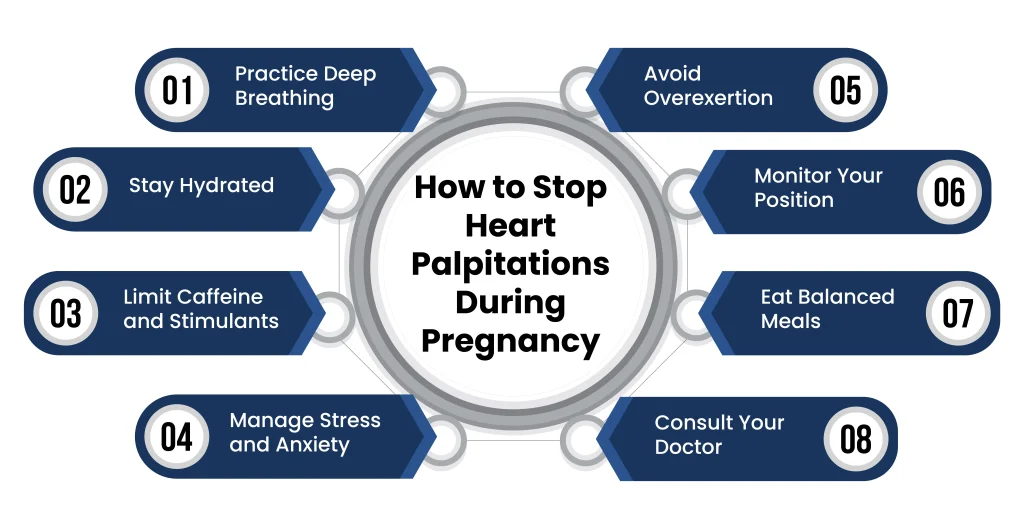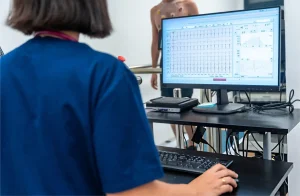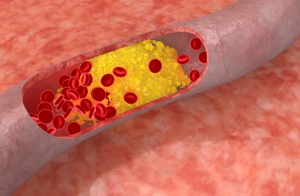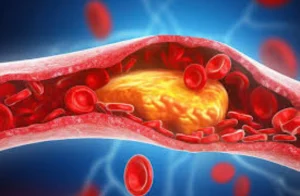Pregnancy is a journey full of surprises, from the first flutter of movement to the endless excitement of planning for your baby’s arrival. But amidst the joy, you might find yourself suddenly noticing that your heart is racing or skipping a beat—literally.
If you’ve felt those unsettling heart palpitations during pregnancy, you’re not alone. It’s enough to make any expectant mother anxious, but before you jump to the worst conclusions, take a deep breath.
In this blog, we’re diving deep into what these palpitations really mean, why they happen, and most importantly, when to keep calm or seek medical advice. Whether this is your first pregnancy or your third, understanding what’s happening with your body can help you manage these symptoms with confidence. So, let’s get to the heart of the matter.
What Do Palpitations Mean During Pregnancy?
Palpitations are essentially the sensation of your heart beating in an irregular or forceful way. It might feel like your heart is racing, fluttering, skipping beats, or pounding harder than usual. These sensations can occur in your chest, throat, or neck and may come and go, lasting for just a few seconds or lingering for longer periods.
During pregnancy, palpitations are usually related to the significant changes happening in your body. Your heart is working harder than ever to pump extra blood to support both you and your growing baby. In fact, your blood volume increases by about 30-50% during pregnancy, leading to an increased heart rate and, occasionally, palpitations.
How Does Pregnancy Affect Your Heart?
Pregnancy is like a full-body workout for your heart, demanding more effort as you progress through each trimester. As your baby grows, so does the workload on your cardiovascular system.
By the second trimester, your heart has already started to adjust to the increased demands of pregnancy. As your baby grows, your blood volume begins to rise significantly—up to 30-50% more than your pre-pregnancy levels. This means your heart has to pump more blood with each beat to ensure that both you and your baby are getting the oxygen and nutrients you need.
The third trimester is when your heart really steps up its game. With your baby nearly full-term, your blood volume is at its highest, and your heart is working overtime to circulate this increased volume throughout your body. This extra workload can sometimes lead to feelings of fatigue, shortness of breath, and more frequent heart palpitations.
Prevent heart problems before they start – Schedule a preventive checkup
Contact UsWhat Are the Main Causes of Heart Palpitations During Pregnancy?
Heart palpitations during pregnancy can be unsettling, but they are often a normal part of the body’s response to the many changes occurring. Here are the main causes that can trigger these sensations:
- Increased Blood Volume: During pregnancy, your blood volume increases by up to 50% to support the growing baby. This extra blood puts more demand on your heart, causing it to pump faster and harder, which can lead to palpitations.
- Hormonal Changes: Pregnancy brings a surge of hormones, particularly progesterone, which can have a significant impact on your heart rate. These hormonal fluctuations can cause your heart to beat faster or more irregularly, resulting in palpitations.
- Stress and Anxiety: The emotional and physical stress of pregnancy can also trigger heart palpitations. Anxiety, in particular, can cause your adrenaline levels to spike, leading to a racing heart or skipped beats.
- Dehydration: Staying hydrated is crucial during pregnancy. Dehydration can lower your blood pressure and cause an electrolyte imbalance, both of which can lead to palpitations.
- Caffeine and Stimulants: Consuming too much caffeine or other stimulants, such as certain medications or even chocolate, can overstimulate your heart and cause palpitations.
- Anemia: Anemia, or a deficiency in red blood cells, is common in pregnancy and can cause your heart to work harder to supply oxygen throughout your body. This increased effort can result in palpitations.
- Thyroid Disorders: Pregnancy can affect your thyroid function, sometimes leading to hyperthyroidism (an overactive thyroid), which can cause your heart to beat faster than normal and lead to palpitations.
- Physical Activity: Even moderate exercise can sometimes cause your heart to race as it adjusts to the increased blood flow required during pregnancy. While exercise is generally beneficial, it can sometimes trigger palpitations.
- Positioning: The way you sit or lie down can affect blood flow. For example, lying on your back in the third trimester can put pressure on your vena cava (a large vein), which may cause your heart to beat irregularly.
When Should You Start Worrying About Palpitations During Pregnancy?
While heart palpitations are often a normal part of pregnancy, there are certain situations where they could signal a more serious issue. Knowing when to be concerned can help you take the right steps to protect both your health and your baby’s.
- Persistent or Severe Palpitations: If they last several minutes or worsen over time.
- Chest Pain: Any palpitations accompanied by chest discomfort or tightness.
- Shortness of Breath: Severe difficulty breathing alongside palpitations.
- Dizziness or Fainting: Feeling lightheaded or faint with palpitations.
- Irregular Heartbeat: Noticeably irregular heart rhythms or fluttering.
- Swelling: Sudden or severe swelling in your legs, ankles, or feet.
- Extreme Fatigue: Unusual tiredness or weakness paired with palpitations.
- Worsening Symptoms: Palpitations triggered by minimal activity or worsening over time.
How to Stop Heart Palpitations During Pregnancy
If you’re experiencing heart palpitations during pregnancy, there are several steps you can take to help manage and reduce them:

- Practice Deep Breathing: Engage in deep breathing exercises to calm your nervous system and reduce stress, which can help slow down your heart rate.
- Stay Hydrated: Drink plenty of water throughout the day. Dehydration can exacerbate palpitations, so keeping your fluid intake up is essential.
- Limit Caffeine and Stimulants: Reduce or avoid caffeine, including coffee, tea, and chocolate, as these can increase heart rate and trigger palpitations.
- Manage Stress and Anxiety: Use relaxation techniques like yoga, meditation, or gentle exercise to lower stress levels, which can help prevent palpitations.
- Avoid Overexertion: Rest when needed and avoid strenuous activities that might overwork your heart.
- Monitor Your Position: Avoid lying flat on your back, especially in the third trimester, as this can pressure your heart. Try lying on your side instead.
- Eat Balanced Meals: Maintain steady blood sugar levels by eating small, balanced meals throughout the day. This can prevent palpitations triggered by blood sugar fluctuations.
- Consult Your Doctor: If palpitations persist or are accompanied by other symptoms, consult your healthcare provider for personalized advice and to rule out underlying issues.
Bottom Line
Heart palpitations during pregnancy can be unsettling, but understanding their causes and knowing how to manage them can help you stay calm and confident. While most palpitations are harmless, it’s essential to listen to your body and seek professional advice if needed.
For expert care and peace of mind, consider consulting with the specialists at Atlantic Cardiovascular. Their experienced team is dedicated to providing personalized care for expectant mothers, ensuring both your heart and your baby are in the best possible hands. Don’t hesitate to reach out and make your heart health a priority during this important time.







